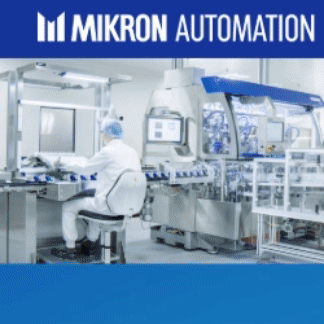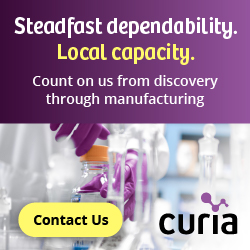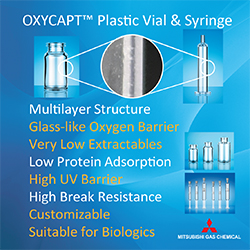Eyenovia Announces First Patient Enrolled in Phase 3 VISION-2 Trial of MicroLine for Presbyopia
Eyenovia, Inc. recently announced the first patient has been enrolled in the company’s second Phase 3 clinical trial of MicroLine, its proprietary pilocarpine formulation for temporary improvement in near vision (presbyopia), known as VISION-2.
“Following the completion of VISION-1 study, we are pleased to initiate this second Phase 3 trial that, if successful, will contribute to the clinical evidence supporting a new drug/device combination application to the US FDA,” said Sean Ianchulev, Chief Executive Officer and Chief Medical Officer of Eyenovia. “By leveraging the numerous benefits of our microdose array print (MAP) technology, we believe MicroLine has the potential to be among the first drug treatments to improve blurred near vision that can adversely impact quality of life in patients with presbyopia. Additionally, with 18 million people between the ages of 40 and 55 in the US afflicted with presbyopia, this is a significant market opportunity for our company – in excess of several billion dollars according to very recent third-party market research. We look forward to continuing to advance this promising and differentiated therapeutic through late-stage development for the potential benefit of patients, eye care practitioners and shareholders alike.”
The VISION-2 study is a double-masked, placebo-controlled, cross-over superiority trial in which approximately 140 subjects with presbyopia will be treated. During the study, subjects will be randomly assigned to a treatment sequence for dosing with pilocarpine 2% as well as placebo, both administered via the Optejet dispenser. The primary endpoint is improvement in high contrast binocular distance corrected near visual acuity measured in low light conditions 2 hours after treatment. Topline data is expected in mid-2022.
In May 2021, Eyenovia announced positive results from the first Phase 3 MicroLine study, VISION-1. In that trial, the primary endpoint was achieved with MicroLine 2% statistically superior to placebo, determined by improvement in high contrast binocular distance corrected near visual acuity measured in low light conditions 2 hours after treatment. Further, MicroLine was very well tolerated; adverse events reported were all mild and transient in nature including fewer than 3% of patients reporting brow/headache. In a post-study survey, 70% of study participants reported strong interest in using MicroLine for near vision improvement should it be approved. These patients said they would expect to use the product three to four times per week on average.
The VISION trials are Phase 3, double-masked, placebo-controlled, cross-over superiority trials that enroll participants with presbyopia. The primary endpoint is improvement in high-contrast binocular distance corrected near visual acuity in low light conditions. MicroLine is intended for the “on demand” improvement of near vision in people with presbyopia.
MicroLine (pilocarpine ophthalmic solution) is Eyenovia’s investigational pharmacologic treatment for presbyopia. Presbyopia or farsightedness is the non-preventable, age-related hardening of the lens, which causes a gradual loss of the eye’s ability to focus on nearby objects and is estimated to affect nearly 113 million Americans. Treatment options are typically device-based, such as reading glasses and contact lenses. Pilocarpine ophthalmic solution is known to constrict the pupil and improve near-distance vision by creating an extended depth of focus through its small aperture effect. Eyenovia believes that its administration of pilocarpine using the company’s high precision microdosing technology could provide a meaningful improvement in near vision while enhancing tolerability and usability. MicroLine has been licensed to Arctic Vision (Hong Kong) Limited in Greater China and South Korea.
MicroPine (atropine ophthalmic solution) is Eyenovia’s investigational, potentially first-in-class topical treatment for the reduction of pediatric myopia progression, also known as nearsightedness, in children ages 3-12. It has been developed for comfort and ease-of-use in children, and its microdose administration is designed to potentially result in low systemic and ocular drug exposure. MicroPine has been licensed to Bausch Health Companies, Inc. in the United States and Canada, and Arctic Vision (Hong Kong) Limited in Greater China and South Korea.
MydCombi is Eyenovia’s investigational, first-in-class fixed-dose-combination product (tropicamide 1% and phenylephrine 2.5% ophthalmic solution) for pharmacologic mydriasis (eye dilation), which is targeted to improve the efficiency of the estimated 100 million office-based comprehensive eye exams performed every year in the United States, as well as the estimated 4 million pharmacologic mydriasis applications for cataract surgery. Developed as a micro-formulation for use without anesthetic, Eyenovia believes MydCombi will help improve the efficacy, tolerability, and efficiency of pharmacologic mydriasis. MydCombi has been licensed to Arctic Vision (Hong Kong) Limited in Greater China and South Korea.
Eyenovia’s Optejet microdose formulation and delivery platform for ocular therapeutics uses high-precision piezo-print technology to deliver 6-8 μL of drug, consistent with the capacity of the tear film of the eye. We estimate the volume of ophthalmic solution administered with the Optejet is less than 20% of that delivered using conventional eyedroppers, thus reducing overdosing and exposure to drug and preservatives. Eyenovia’s patented microfluidic ejection technology is designed for fast and gentle ocular surface delivery, where solution is dispensed to the ocular surface in approximately 80 milliseconds, beating the ocular blink reflex. Successful use of the Optejet has been demonstrated more than 85% of the time after basic training in a variety of clinical settings compared to 40%-50% historically seen with conventional eyedroppers. Additionally, its smart electronics and mobile e-health technology are designed to track and enhance patient compliance.
Eyenovia, Inc. (NASDAQ: EYEN) is an ophthalmic pharmaceutical technology company developing a pipeline of microdose array print (MAP) therapeutics. Eyenovia is currently focused on the late-stage development of microdosed medications for mydriasis, presbyopia and myopia progression. For more information, visit Eyenovia.com.
Total Page Views: 651













